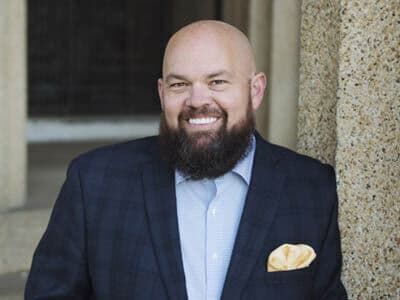WATCH: U.S. Supreme Court justice talks about Constitution
Regional News

Audio By Carbonatix
3:30 PM on Wednesday, September 10
Dave Mason
(The Center Square) – U.S. Supreme Court Associate Justice Amy Coney Barrett is calling for civility in an increasingly polarized nation.
“Democracy requires compromise,” Coney said Tuesday evening at the Ronald Reagan Presidential Library and Museum in Simi Valley, Calif. “We can’t govern ourselves if we’re not willing to compromise and meet in the middle.”
Founding father Benjamin Franklin wasn’t fully satisfied with the U.S. Constitution, but considered it a miracle that the document’s framers found as much agreement as they did, Coney told the large audience and media packing an auditorium in the museum near Los Angeles. She was promoting her new book, “Listening to the Law: Reflections on the Court and Constitution.”
Coney talked about the Constitution and more as a modest-size group of peaceful protesters stood and held signs opposing the U.S. Supreme Court’s conservative majority’s rulings and the opinions of Barrett, part of that majority, at the bottom of the long hill below the Reagan Library.
If the court tries to make only popular decisions, it isn’t doing its job, Barrett said.
“Sometimes what the law requires runs counter to what the majority wants,” she said, answering questions on stage from Fred Ryan, chair of the Ronald Reagan Presidential Foundation Board of Trustees.
“What the court is doing is law and not politics,” Barrett said.

Justice Amy Coney Barrett Speaks in Simi Valley Wide Shot
A Reagan Library auditorium is packed as U.S. Supreme Court Justice Amy Coney Barrett answers questions from Fred Ryan, chair of the Ronald Reagan Presidential Foundation, in Simi Valley, Calif., on Sept. 9, 2025. Dave Mason/The Center Square
Barrett noted she agreed with liberal Associate Justice Sonia Sotomayor that Americans should go beyond the headlines and read the justices’ opinions. Barrett gives the same advice in her book.
“That’s where you can hold us accountable,” Barrett said. “That’s where we try to show you our work.”
Ryan asked Barrett about the court’s emergency docket, which was in the headlines this week when justices, including Barrett, voted 6-3 to grant a temporary stay on a U.S. District Court judge’s order against using race, workplace or language as factors in arresting illegal immigrants in California.
People applying for emergency relief from the court are saying they’ll be irreparably harmed while a case is proceeding, Barrett said.
The person seeking relief must also show they’re more likely than not to ultimately prevail in the case, Barrett said, but noted the emergency docket decisions are not final resolutions.

Justice Barrett comments on emergency dockets amid ruling on immigration raids
A Conversation and Book Signing with Supreme Court Associate Justice Amy Coney Barrett 9/10/25
The court’s decisions on its regular or “merits” docket come months after a petition for writ of certiorari is filed, requesting that the court hears a case, she noted. The Supreme Court is selective about the cases, hearing just 60 cases a term from the 4,000 petitions it receives, Barrett said.
“The court resolves conflicts that exist among other courts in the country,” she said. “We get involved when there’s a reason.”
The justice also noted the advantage of America having a written constitution, as opposed to the unwritten ones that existed before the birth of the U.S.
Having the Constitution in writing preserves rights such as the freedom of speech, Barrett said. “It makes it impossible to have disputes on whether the rights exist. We focus on how those rights apply.”







